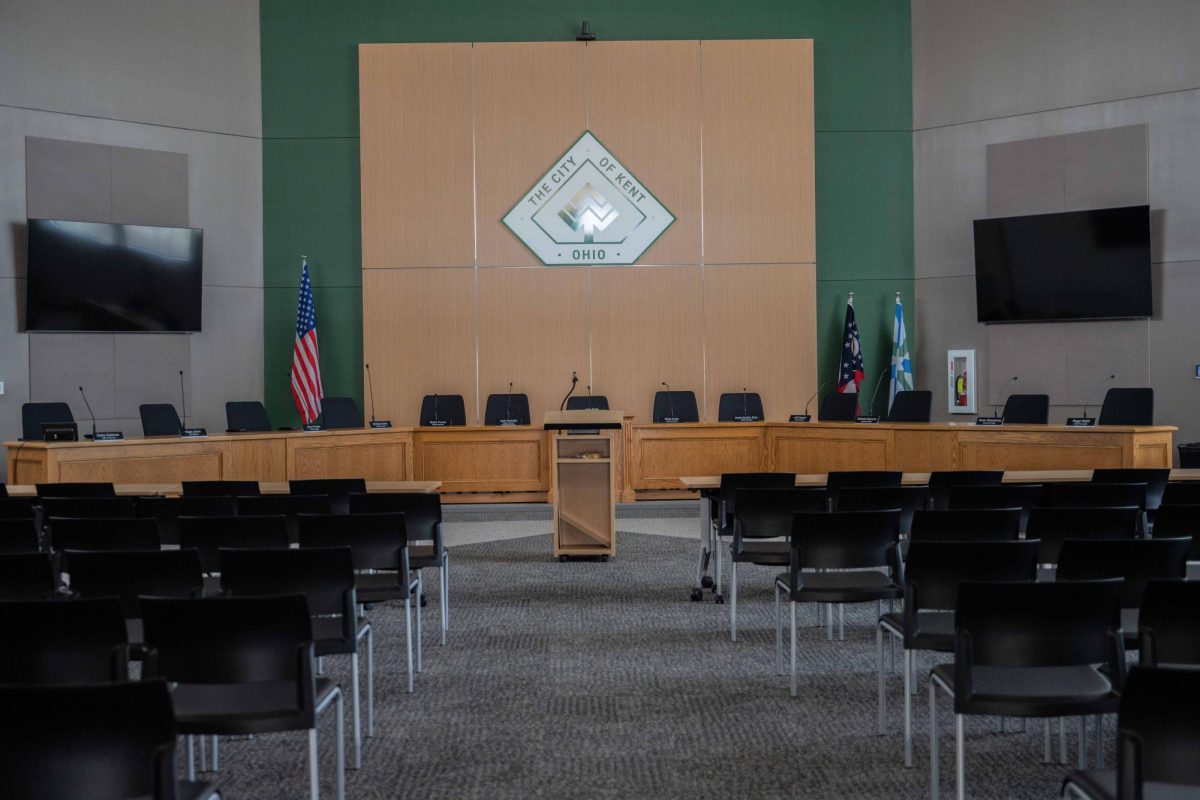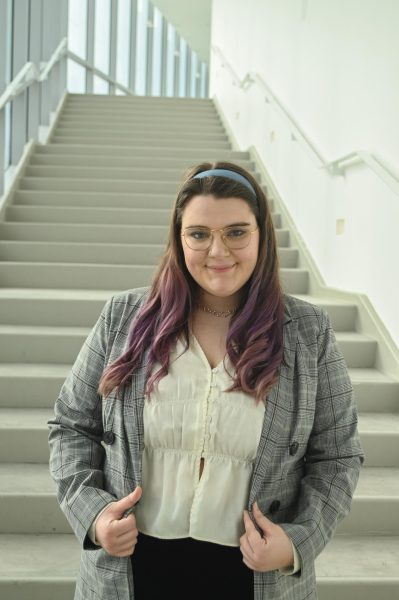The city of Kent will remain the only city in Portage County with partisan elections after the city council voted to reject a recommendation for nonpartisan races on July 9.
The recommendation was put forth by the Kent Charter Review Commission, a group of local residents who meet every decade to potentially add amendments to the city charter. Council votes on these recommendations and if approved, would place the issue on the ballot and allow Kent voters to have the final say on the matter in the next general election.
If Kent voters passed the recommendation in the general election, it would have removed party affiliation such as “Democrat” or “Republican” from future political candidates on ballots for city council and mayoral positions. Candidates would still be able to communicate their values and say what political party they identify with, but it wouldn’t be placed on the ballot.
With the recommendation being rejected, Kent voters will not receive a chance to vote on the issue. Katherine Parker, a Kent resident, said she would be in support of nonpartisan elections. She added party lines shouldn’t be a major factor in city council races.
“[Partisan elections] never really bothered me, but I think it would be better if they were nonpartisan,” Parker said.
Barbara Hipsman Springer, an emerita faculty member of the School of Media and Journalism and Charter Review Commission member, said nonpartisan elections would allow more Kent residents to be a part of the primary voting process.
Due to Ohio’s closed primary rules, where you must affiliate with a particular political party to participate in a primary, an estimated 15,000 Kent residents are unable to vote in a primary election, more than half the population of the city, according to Hipsman Springer.
“We felt pretty strongly that encouraging people to vote is paramount,” she said. “[City council] was very surprised to hear those numbers. I don’t think any of them ever explored that issue of nonaffiliated voters.”
Despite the strong argument, Hipsman Springer wasn’t surprised the council rejected the idea. She added that it boiled down to council members wanting to run with a “D next to their name.”
The only two council members in support of nonpartisan elections were Melissa Celko and Gwen Rosenberg. Although Rosenberg didn’t feel strongly in favor or negatively of the recommendation, she thought it’d be best to let Kent voters ultimately decide the issue.
“The very fact that there was as much discussion as there was made me think that voters would probably have their own opinions on it,” she said. “It would allow the voters to make that decision for themselves and for their community and city.”
Robin Turner was one of several council members to oppose the idea of nonpartisan elections. His main argument against the recommendation is that the original system of partisan elections isn’t broken, and that it doesn’t exclude anyone from the voting process.
Turner said affiliating with a political party is a choice for the voter to decide. If they want to be a part of the primary voting process, they should affiliate with a political party. If they don’t want to affiliate, then they can’t be expected to participate in that party’s primary.
“I think that’s perfectly reasonable,” Turner said. “It makes sense.”
Among his other arguments, Turner said despite the number of unaffiliated voters, many Kent residents are progressive and support Democrat candidates rather than independents. He also said showing political affiliation on the ballot is a quick way for voters to understand a candidate’s values, and that political affiliation has historical and societal value.
“I just don’t see any rationale that people can employ in this case that this is not a fair system,” Turner said.
Although the recommendation wasn’t passed by council, concerned citizens who wish to have this issue on the ballot in the general election can collect signatures for a petition-led ballot initiative. According to Hipsman Springer and Rosenberg, there have yet to be any attempts by residents to pursue this course of action.
While Hipsman Springer and other commission members were disappointed the recommendation didn’t pass through council, she’s glad she was able to inform council of this potential problem.
“We exposed an issue that should be a sore spot in the city,” Hipsman Springer said. “It should be a point that can be discussed in future elections.”
John Engoglia is sports editor. Contact him at [email protected].
Nikki Gasiewski contributed to this article.




